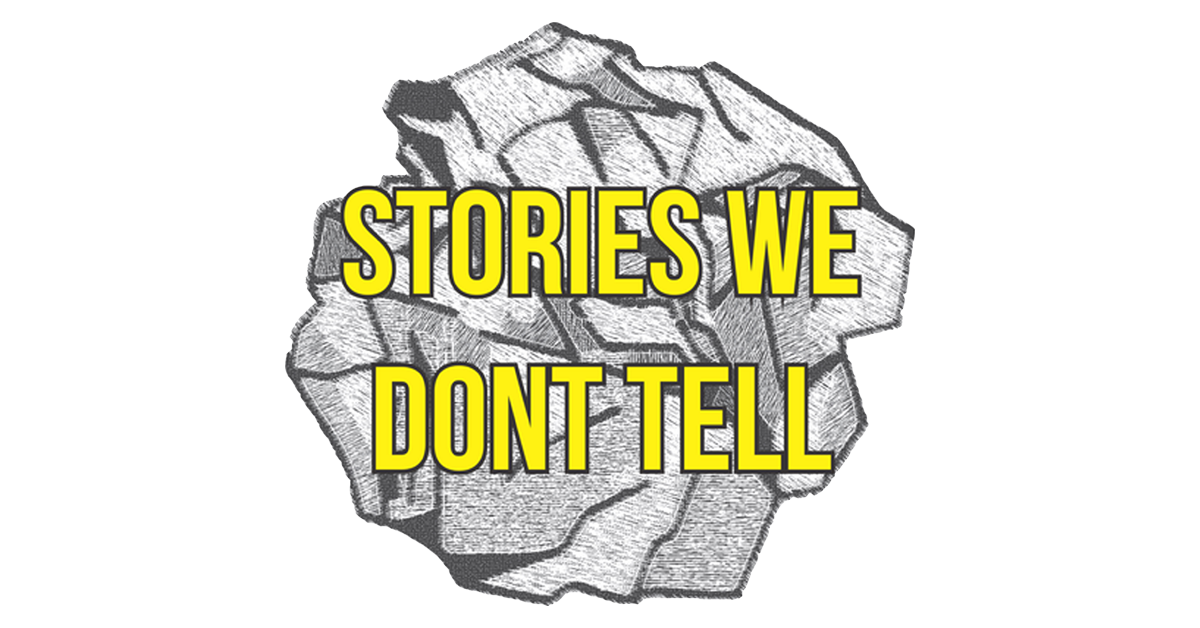This is a transcription of Stories We Don't Tell Podcast Episode 62: Find your moment. Listen to the podcast episode HERE.
This is part 3 of our five part series: don't take this advice. In this episode we're talking about context and setting the scene.
We think it can it can take different forms. First, you want to place people in the environment with you. It depends on what kind of story you're telling, what kind of tone it is, what the theme is and what you're trying to accomplish with it. Remember that you are guiding an audience to go along with you in the story - whether emotionally or you just want them to enjoy the story or whatever. We think it is important to place yourself or whatever the story is about in some type of context. Where it is or what we're talking about here.
There's different indications or nods to the audience where you can let them know about the time period that you're in or if you're a teenager or it's a different location or a specific place. Just those things we think are important because you don't want to confuse the audience. For example, all of a sudden you say in the middle of the story, "I'm in Japan!" And the audience doesn't know what's going on. You're throwing them off. You're pulling them out of the story.
The goal should be that you're trying to get everyone to come along with you. Placing the audience in the story with you is important, but perhaps you want to remove context. Perhaps there is a reveal late in the story. But, the point here is just to start making those decisions. It's also important to understand where you are in the story. Maybe you don't want people to know you are in Japan.
Context helps you navigate through the story. We always want people to see themselves in the stories. By not placing your story, and by extension you, in your story, you run the risk of alienating the audience. They might not understand why you're doing the things you're doing and that all of that can come from the fact that you don't give them enough context to where you were at that time. And even if you end up doing something that's wrong or that they don't agree with, they'll still be in the story. It's a melding of your experiences and the audience's experiences in some kind of weird way. So: provide context!.
To wrap things up, so far you want to write out your entire story, find the specific moments you want to talk about and place those moments in context for the audience.

